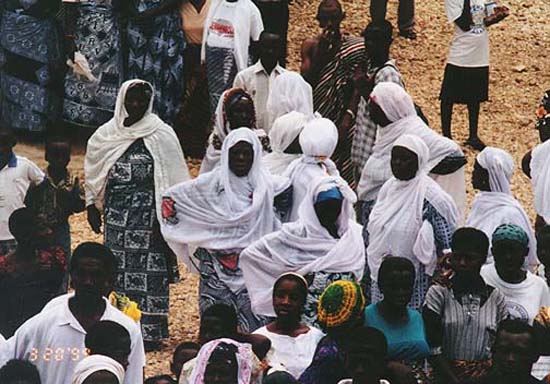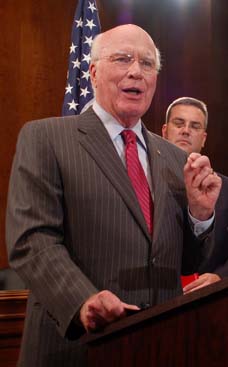
"The news of a "new" Ghana is fast spreading worldwide. Thus investors, International organizations and NGOs all over the world are coming to ask questions about how they can be of help. The country is also home to hundreds of American Peace Corps volunteers and other bodies who are contributing to a sustainable future for Ghana especially in the rural areas where they can work unmolested providing different services ranging from health, agriculture, teaching and other volunteering services."
Bayo Olupohunda writes: Ghana and Nigeria: A tale of two nations
Opinion: Ghana and Nigeria: A tale of two nations
Last Updated: Wednesday, 2 September 2009, 6:20 GMT Previous Page
By: Bayo Olupohunda
Visiting Ghana from Nigeria for the second time in ten years, one cannot but marvel at the turn of events and the progress this country has made in recent years since I last visited. After four days in this emerging African giant, Accra, the capital city, represents the face of a new Ghana.
As you take a long walk from your hotel, located at the city centre, to feel the pulse of this city, you are at once confronted by the new found enthusiasm, pride and sense of patriotism of the average Ghanaian. You could feel the new sense of optimism on the street.
The first sight is also that of orderliness and calm. The environment is clean and green. People are always willing to offer to help and oblige you when you ask for directions without any fear that you are a ritualist or a conman (419). At night, as you walk back to your hotel after a few drinks club crawling with friends, the streets are all lit up with streets lights that gives a sense of security and beauty that you almost forgot it was already 1.30 am in the morning.
The bars and clubs in this city are all swarming with tourists from America, Europe and other Western nations who are also seen walking and mixing late into the night with the locals. Ghana is also fast becoming a tourist destination, another African success story after Botswana and South Africa.
On the streets of Accra and Cape coast, foreign nationals especially Europeans and Americans are seen walking the streets without any fear, anxiety or the thought of being kidnapped. On a visit to the Elmina Castle the historical 19th century slave port, tourists pour in droves cementing Ghana's new status as a destination of choice in Africa.
And the news of a "new" Ghana is fast spreading worldwide. Thus investors, International organizations and NGOs all over the world are coming to ask questions about how they can be of help. The country is also home to hundreds of American Peace Corps volunteers and other bodies who are contributing to a sustainable future for Ghana especially in the rural areas where they can work unmolested providing different services ranging from health, agriculture, teaching and other volunteering services.
What is the attraction? International goodwill flooded into Ghana after the credible elections held here. Before this, international visitors have also felt at home with the peace and tranquility in Ghana and the honesty of the average Ghanaians. Power is stable and investment policy is enabling enough for investors who do not have to worry about dishonest officials at the Ports like Nigeria. The state visit of President Barrack Obama has further won Ghana more international friends who are impressed by their democratic credentials.
Four days earlier as you enter Ghana through the Aflao border, you observed the attitude of Ghanaian immigration officials who welcome you with smiles into the country. You also notice a sense of pride and duty of these immigration officials. You compared this to the attitude of their Nigeria counterpart at the Seme end of the Nigerian border where the hostility of Nigerian immigration officials who treat every traveler as potential smuggler is legendary.
At the University of Ghana, the environment presents a vivid picture of a serious academic environment. One remarkable feature in this university is the population of foreign students. According to Lydia Anowa Nyarko, Assistant Registrar, International Programmes at the University of Ghana, foreign students are flocking to Ghana because of the political crisis in Kenya which used to be the most popular destination in Africa for such programmes.
She also admitted that the chaos and decadence in the educational system in some countries and especially Nigeria has been a boon to Ghana school system at all levels. Currently, 309 visiting students from the US, Germany, Japan, South Africa and other countries are undergoing orientation in culture, security, health and academic issues at the University of Ghana.
Miss Nyarko said her inbox is jammed with enquiries of admission from various countries especially Nigeria. She submitted that the programme is gaining more popularity because the University has sold itself well internationally. She said each visiting student pays US$1,500 as against US$15,000 charged in South Africa and other Western countries and this is a source of substantial revenue for the university.
More students from Americans, Europeans and Caribbean nations are currently enrolling and running exchange programmes or starting undergraduate and post- graduates' programmes in several institutions in this country. The university is also home to academics from Europe and America who prefer Ghana for such academic exchanges and sabbaticals. I spotted some academics from these countries.
The Dean of International Programmes, Prof. Eric Danquah, said the University of Ghana considers the international student population as a vital facet of its internationalization drive. Such students constitute three point three per cent of the total student population and the aim is to increase the figure to 10% in subsequent years. Comparably, there are no single foreign students in any Nigerian higher educational institutions who claimed to be the "giant of Africa"
A report monitored here said that Ghana is also among a dozen African countries short listed to meet the Millennium Development Goal target of halving poverty by 2010 after lifting significant percentages of their citizens above the poverty line, according to a World Bank report released in Washington. Conversely, Nigeria is among the few countries in Africa that will not achieve any of these goals even in year 2025 and our country is mouthing being a leading world economy in 2020. Who is fooling who?
The World Bank has also commended Ghana for its economic growth and the improvement of standards of living for its citizens. It said in its recent Country Performance Institutional Assessment Report that the country has made lots of stride in improving governance, growth, and poverty in the last years.
Ghana, regarded as the "envy of West Africa" was ranked 5th among 75 low income countries, second in sub-Saharan Africa and was on top of several other middle income countries in 2008 according to The Public Agenda. The report said "Between 2001 and 2008, this index went from 3.4 to 4.0. The successful democratic transition from December 2008 is another important expression of the maturity of Ghanaian institutions at their highest level"
The report commended the new administration for its commitment to bringing fiscal balance down in 2009 and 2010 aimed at stabilizing the debt to GDP ratio. This country has also gained important external support; critical to financing deficits internally that will pull in private investors.
On March 6, 2009, Ghana celebrated the fifty two anniversary of its independence with strong growth, continued poverty reduction, and renewed optimism about its future. The country's present determination to reach middle-income status is reminiscent of the optimism and self-confidence that characterized the mood of its original independence celebrations in 1957.
The first half of Ghana's 50 years of independence could be characterized by political instability, mixed development paradigms, and policy reversals. Ghana's long-term economic performance in the early independence years was closely associated with cycles of political instability and shifts in policy regimes, including changes in strategies between state-led and market-led development
But since 1983, Ghana has entered a period of relative political stability and gradually improving policy and growth performance. With improved policies, the country also began to receive increasing amounts of financial aid. More recently, since 2000, Ghana has significantly improved its macroeconomic management and economic performance.
In a welcome development, since the 1990s, Ghana's economy has begun to advance. The country has sustained real GDP growth of above 4 percent and per capita growth of approximately 2 percent. These figures have elevated Ghana toward the medium growth performance among African countries over this period. The Government of Ghana (GoG) now explicitly aims to achieve middle income status by 2015, with an annual GDP growth of 6 percent to 8 percent.
Ghana has recently achieved impressive gains in growth performance and poverty reduction. Improving the policy environment was a major contributor to this success although a benign external environment in terms of agricultural export prices has helped. Economic growth has averaged over 5 percent since 2001 and reached 6 percent in 2005–06. This strong growth nearly halved the poverty rate in Ghana––the proportion of the population below the country's poverty line––from approximately 52 percent at the beginning of the 1990s to 28.6 percent in 2005–06.
As a result, Ghana, unlike Nigeria, is well ahead of schedule in achieving the key poverty Millennium Development Goal (MDG). In the low-income African context, this achievement is remarkable. Significantly, it is built on the foundation of the improved economic policy environment––based on sound fiscal management––and investment climate, rising private investments, and aid. Alongside Tanzania and Uganda, Ghana is one of the three strongest economic policy performers among low-income African countries.
How time flies? My visit finally came to an end and it was time to head back to Lagos. As I packed my bag and baggage to depart this emerging African giant, I suddenly felt gloomy and despondent. Throughout the week of my stay for this educational leadership seminar, not once did electricity blinked. But as I made my way down the stairs of the hotel to board the taxi for the road journey back home, a text message from Nigeria informed me we have not had light on my street in the last five days and the generator has packed up again.
So you can understand my despondency. After several hours of traveling, I finally arrived Seme border to the `warm embrace` of Nigerian immigration officials and the numerous checkpoints of countless security agencies that are daily making nonsense of the Dora Akunyuli re-branding Campaign.













